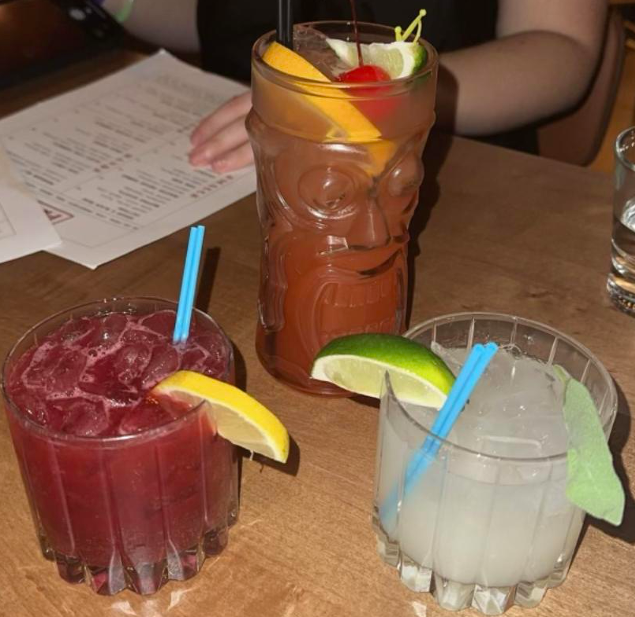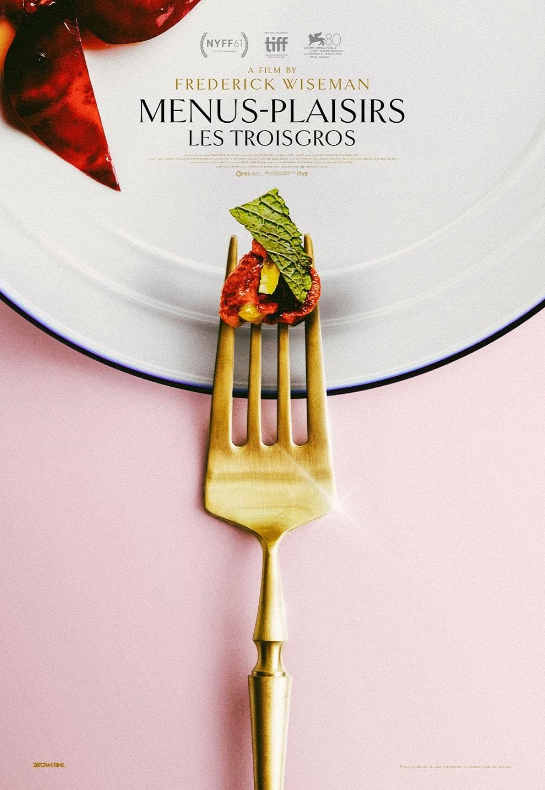
Sitting at the edge of the North Pleasant Street strip, before the smattering of Amherst eateries beyond it, Baku’s African Restaurant is a curiosity.
With its informal opening hours and relaxed set-up, a trip to the Nigerian restaurant feels a bit like eating in someone’s kitchen. Owner Chichi Pat Ononibaku works in the open kitchen just behind the counter, cooking and chatting and always engaging, but never in an overbearing manner.
Cheerful and colorful, Baku’s stands out alongside its counterparts as a chilled-out dining alternative with its home comforts and affordable menu and is definitely worth the trip. While there are certainly no-frills, it offers something a little bit different with a style of living room ambience.
With the restaurant’s limited number of tables, everything feels more personal. The music is quiet, and the place is small enough to hear the conversations of nearby tables. Baku’s is a haven for fans of the recent trend in home dining clubs, except thankfully this experience is a whole lot less over-the-top.
The menu is simple and to the point, offering a small selection of traditional African dishes with goat, chicken and beef curries as the core – supplemented with jollof rice and a selection of sides. According to Ononibaku, it’s a formula that appeals to University of Massachusetts students “who bring dates if they want to impress them by taking them to eat something exotic.”
The “appetizer pleasers” are a choice of “Tasty Akara” (black eyed pea fritters) or the mysteriously named “Popular Dodo.” Is Baku’s serving an extinct bird turned starter? The Popular Dodo is in fact fried plantain, probably tastier and a lot less ethically dubious than its feathery namesake.
Plumping for the “Family Meal Special” seems to be a smart move if dining with friends. For $35.95, three people can cheaply split the cost of two courses and sample most of the menu in one fell swoop. This special includes an appetizer with a big platter of curry served with Baku’s Nigerian stew – seemingly a fancier name for a tomato sauce – as well as rice and vegetables. It’s a hearty path to a full stomach.
Baku’s isn’t the place to go if one is looking for a lingering meal. They don’t serve alcohol, so if one is planning a date that requires some boozy lubrication – aside from the fact that this probably doesn’t bode well for its longevity – go someplace else. And the 9 p.m. closing time might be the kiss-of-death curfew for any weekend gastronomic romance.
What Baku’s specializes in is simplicity. If one wants some grub in a cozy, canteen-ish atmosphere before catching a showing at the Amherst Theatre, then go to Baku’s and know what to expect. There won’t be hundreds of orders to slow down one’s night, and one can just enjoy a plate of good, simple goat curry, preferably washed down with some sweet mango juice – a Baku’s signature – while still receiving some change from a $20 bill.
It’s a simple setup that works well and it seems bizarre that chancing on such friendly and informal service should feel like a novelty. That is exactly Ononibaku’s aim, to transplant a bit of Nigerian culture to Amherst. On Baku’s website, she affirms, “In Nigeria, food is associated with love, sharing, joy, trust, rituals, celebrations and friendship.”
Presumably this is what keeps Baku’s loyalists coming back. But it’s also what may stop some people from walking through the door in the first place if a night of food served with mood lighting and semi-anonymity is preferred.
One qualm though is that Baku’s doesn’t serve dessert. The main dishes are filling, but a sweet ending is good too.
In place of desserts, Baku’s serves an assortment of teas. Nigeria knows its tea, something that reflects not only its history as an ex-colony of a nation of tea obsessives but also its culture of drinking tea for its medicinal qualities. Baku’s features a honey ginger and fragrant cinnamon tea feature, along with a “super spicy” iced alternative.
While Baku’s might not provide the most varied of menus in town, it effectively has about five staple flavors to work through. Since opening in 2005, Ononibaku has established a hub that works for people.
“I want to promote a positive image of African culture in America where African culture is often unappreciated,” said Ononibaku, who hosts educational lunchtime programs.
It’s apparent that the majority of customers are returners, receiving warm familiar welcomes from the staff. For anyone feeling down, a chat with Ononibaku – over a plate of curry and an icy glass of mango – could be a nice alternative to therapy.
Stevie Mackenzie-Smith can be reached at [email protected].












